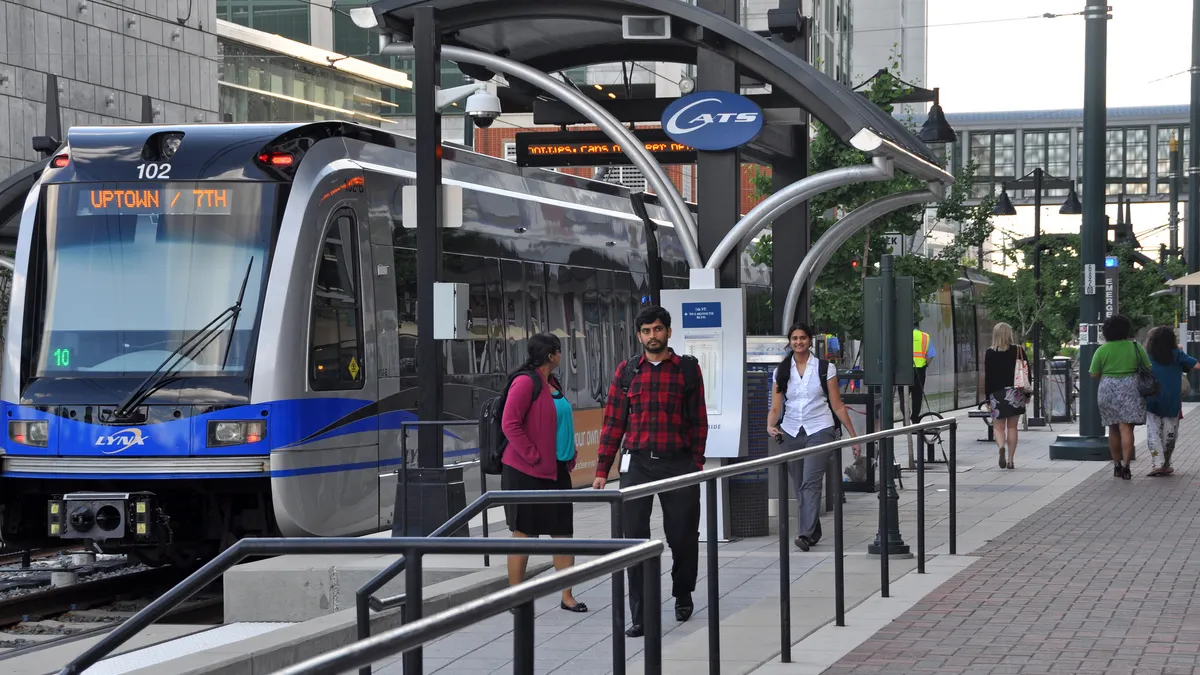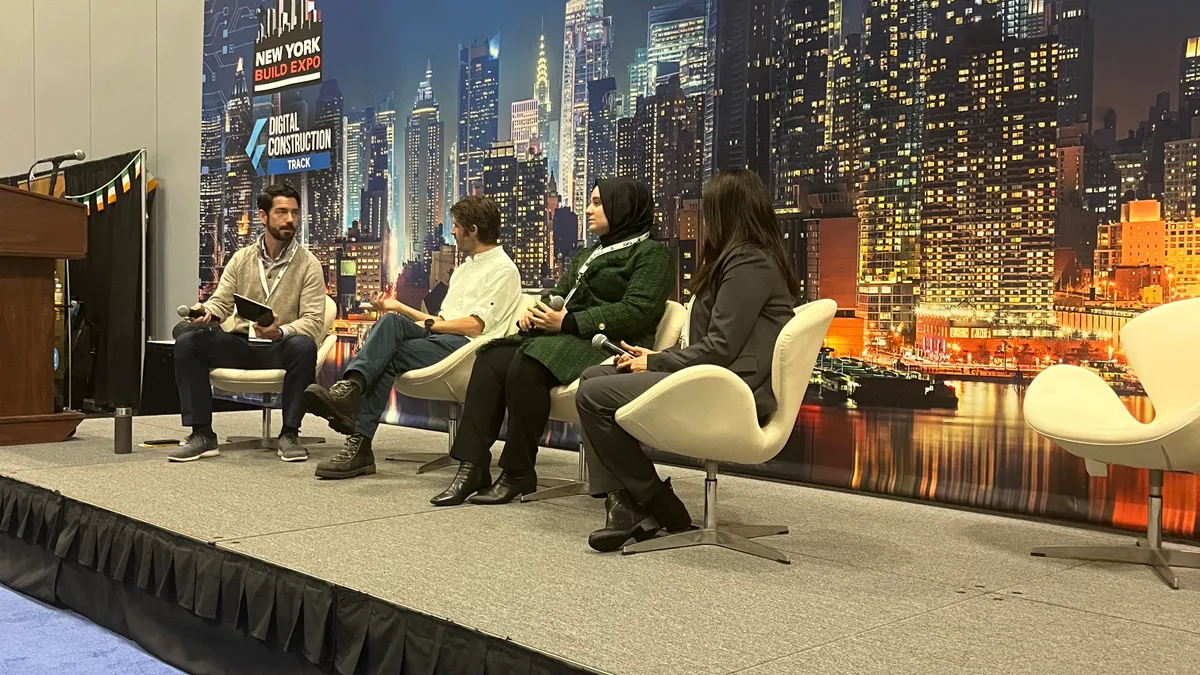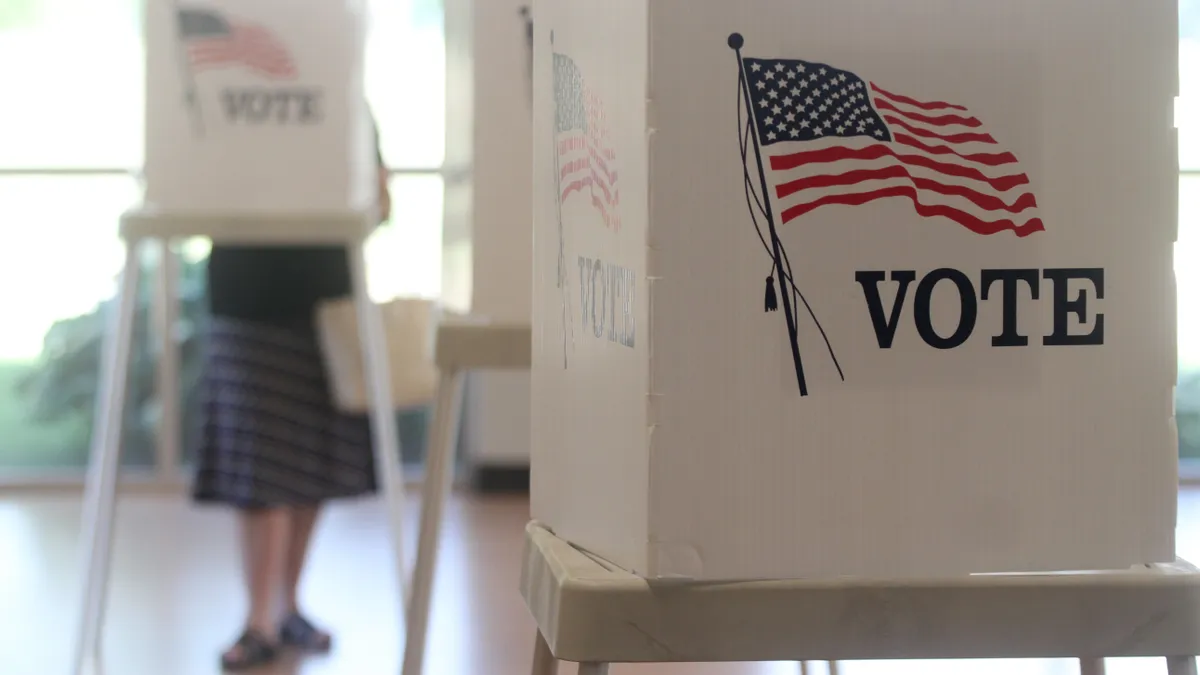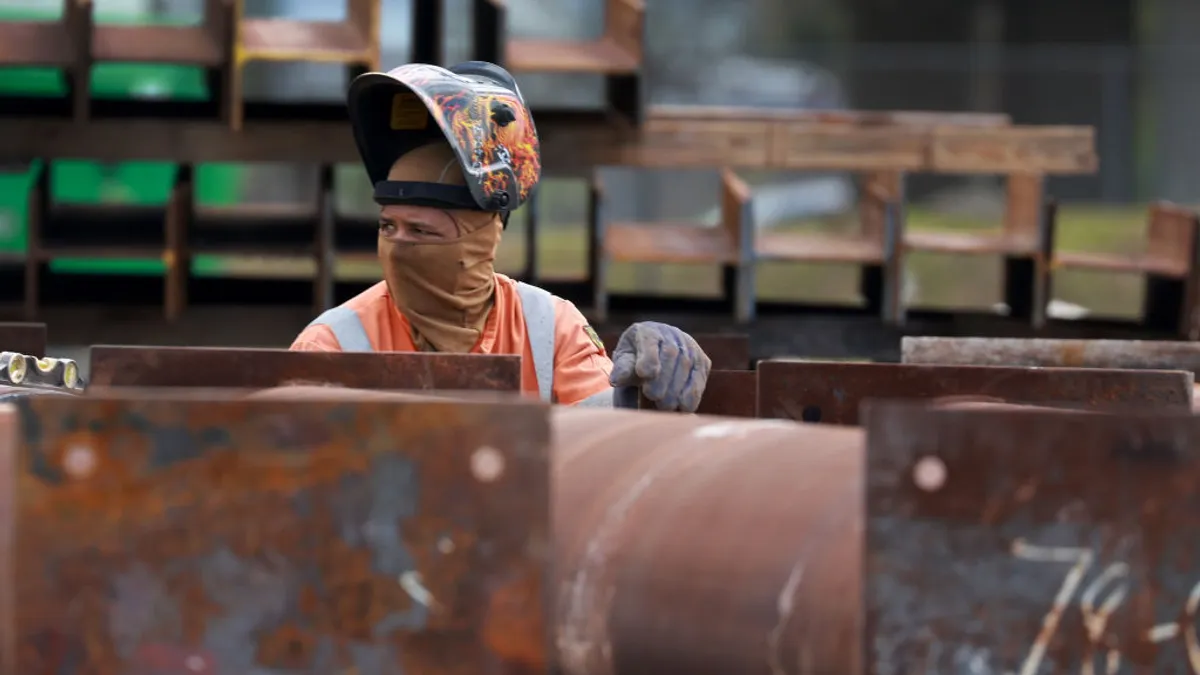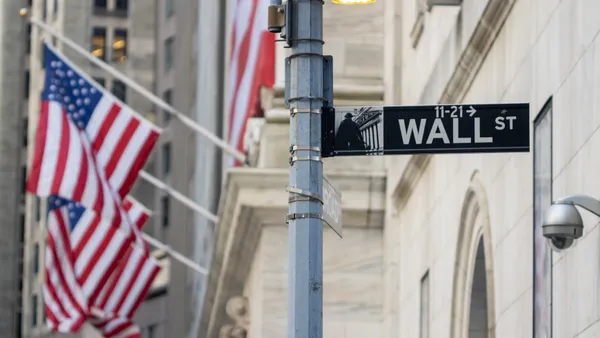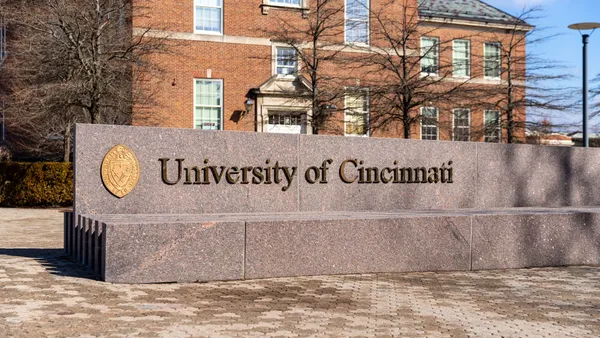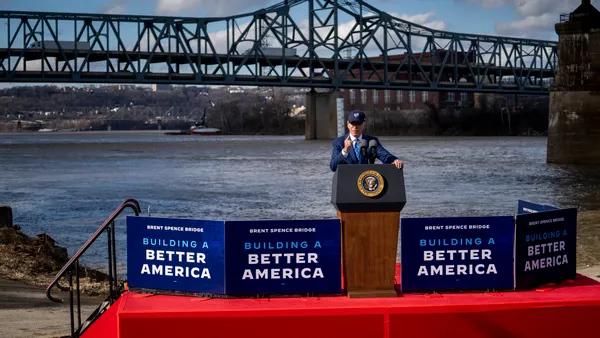Dive Brief:
- At the Jan. 23 meeting of Charlotte, North Carolina's Metropolitan Transportation Commission (MTC), Charlotte Area Transit System (CATS) staff made its route and other recommendations for a $5 billion to $7 billion expansion of light-rail and other transit services. Staff members decided against a new east-west light-rail tunnel under the center of Charlotte, citing the risks of high costs — potentially $1 billion — and unknown tunneling conditions, The Charlotte Observer reported.
- Staff also recommended establishing a bus rapid transit line to the northern suburb of Mooresville rather than building a new light-rail line along existing Norfolk Southern freight lines, creating routes for east and west light-rail expansion and conducting a study regarding light-rail service to the city’s southern suburbs.
- The MTC will consider the staff’s recommendations in the years to come as details like the location of stations, exact routes, land acquisitions and environmental issues are worked out. Area transit officials will also have to come up with additional money to pay for its plans, as the half-cent county sales tax provided only $103 million for transit projects in the past fiscal year.
Dive Insight:
In previous statements, CATS CEO John Lewis said the system would be open to exploring various methods of funding including a special transit sales tax, state and federal money, rental car taxes, a vehicle registration fee add-on, "value capture" property tax districts, public-private partnerships (P3s) or some combination of these financing mechanisms. Lewis, according to The Observer, did express doubts about the agency's ability to participate in certain types of P3s because he said Charlotte doesn't have the revenue base to make guaranteed annual payments if required.
In the world of commuter rail, P3s are relatively new. The first P3 in this sector was the $2.2 billion Eagle P3 Project in the Denver area. The agreement, which is now in its maintenance phase, except for one portion which is scheduled to open early this year, saw Denver Transit Partners (DTP), which includes Fluor Enterprises, Uberior Investments and John Laing Investments, design, build, finance, operate and maintain the Regional Transportation District’s East Rail Line, Gold Line, Northwest Electrified Segment and Commuter Rail Maintenance Facility under one contract.
Private equity from DTP Ventures helped finance the project, along with district sales tax bonds and a $1 billion Full Funding Grant Agreement from the Federal Transit Administration.
The FTA favors projects that can come up with the majority of capital costs on its own. The FTA, for instance, recently executed a $1.1 billion Full Funding Grant Agreement for Seattle's $3.2 billion Lynnwood Link Extension light-rail project. The agency said the local transit authority smoothed the way for an approval by committing to pay for more than 60% of the project's costs.


